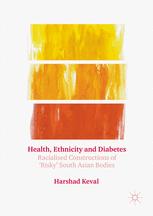

Most ebook files are in PDF format, so you can easily read them using various software such as Foxit Reader or directly on the Google Chrome browser.
Some ebook files are released by publishers in other formats such as .awz, .mobi, .epub, .fb2, etc. You may need to install specific software to read these formats on mobile/PC, such as Calibre.
Please read the tutorial at this link: https://ebookbell.com/faq
We offer FREE conversion to the popular formats you request; however, this may take some time. Therefore, right after payment, please email us, and we will try to provide the service as quickly as possible.
For some exceptional file formats or broken links (if any), please refrain from opening any disputes. Instead, email us first, and we will try to assist within a maximum of 6 hours.
EbookBell Team

5.0
110 reviewsThis book explores the often contentious relationship between health, concepts of race and ethnicity, and the impact on South Asian groups. Using medical sociological and anthropological perspectives, it excavates racialised constructions of diabetes ‘risk’ within discourses, and highlights the contrasting counter narratives in people’s accounts of their everyday lives.
By identifying a number of components to the discursive, racialised construction of ‘risky’ South Asian bodies, this book problematises taken for granted understandings of culture, lifestyle and genetic risk. The mobilisation of these mechanisms in health science and interventions result in a racialising gaze, directed at groups already experiencing historically embedded race-related issues. The book situates these constructions of risk against the emergent, fluid and dynamic counter narratives to risk constructions. The new found momentum in genetic science is also critiqued in its formulation of racial-genetic risk, especially in the case of diabetes in South Asian groups, and is identified as perpetuating a series of racializing processes.